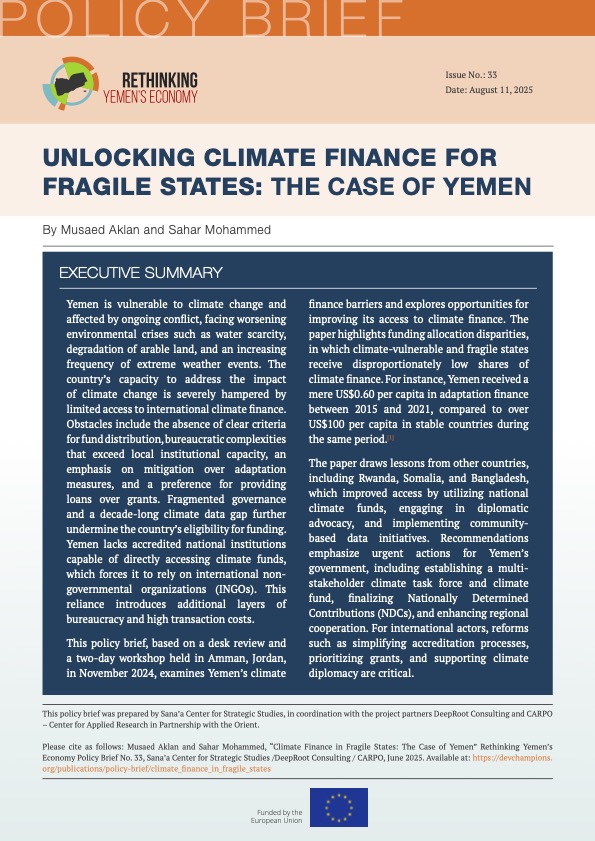Executive Summary
Yemen is vulnerable to climate change and affected by ongoing conflict, facing worsening environmental crises such as water scarcity, degradation of arable land, and an increasing frequency of extreme weather events. The country’s capacity to address the impact of climate change is severely hampered by limited access to international climate finance. Obstacles include the absence of clear criteria for fund distribution, bureaucratic complexities that exceed local institutional capacity, an emphasis on mitigation over adaptation measures, and a preference for providing loans over grants. Fragmented governance and a decade-long climate data gap further undermine the country’s eligibility for funding. Yemen lacks accredited national institutions capable of directly accessing climate funds, which forces it to rely on international non-governmental organizations (INGOs). This reliance introduces additional layers of bureaucracy and high transaction costs.
This policy brief, based on a desk review and a two-day workshop held in Amman, Jordan, in November 2024, examines Yemen’s climate finance barriers and explores opportunities for improving its access to climate finance. The paper highlights funding allocation disparities, in which climate-vulnerable and fragile states receive disproportionately low shares of climate finance. For instance, Yemen received a mere US$0.60 per capita in adaptation finance between 2015 and 2021, compared to over US$100 per capita in stable countries during the same period.
The paper draws lessons from other countries, including Rwanda, Somalia, and Bangladesh, which improved access by utilizing national climate funds, engaging in diplomatic advocacy, and implementing community-based data initiatives. Recommendations emphasize urgent actions for Yemen’s government, including establishing a multi-stakeholder climate task force and climate fund, finalizing Nationally Determined Contributions (NDCs), and enhancing regional cooperation. For international actors, reforms such as simplifying accreditation processes, prioritizing grants, and supporting climate diplomacy are critical.

 اقرأ المحتوى باللغة العربية
اقرأ المحتوى باللغة العربية

